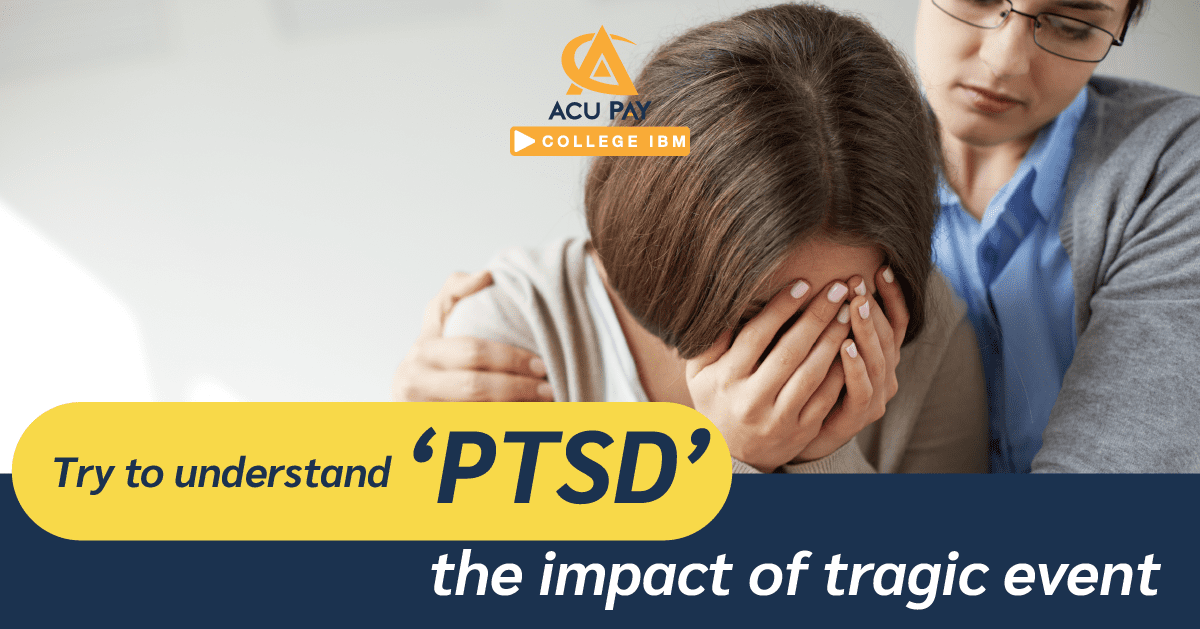

After a loss or unexpected incident, in addition to external injuries, our mental state is also affected and sometimes can affect our lives. Today, ACU PAY will take you to know PTSD about its symptoms and how to treat it.
PTSD or Post-Traumatic Stress Disorder is a mental disorder that occurs after facing a serious psychological threat or fatal injury such as terrorism, war, rape, disaster, or accident. Patients may be directly or indirectly victims. These stresses themselves affect the patient’s daily life.
Because PTSD affects the mental health, including the emotional aspects of patients, which can lead to potentially dangerous psychological and behavioral disorders.
When we face PTSD which affects our mental health, we can be treated in many ways, and take time to recover accordingly, along with surrounding people’s care. The treatments are as follows:
If the above conditions are present, try to learn how to manage stress, such as finding relaxing activities, meeting people or doing activities with family.
Eat healthy food, reduce alcohol, not use drugs, and take rest more
Doctors will prescribe medicines that can reduce stress or help relieve depression. The use of medicine must only follow the doctor’s instructions and orders.
They can consult with the doctor for a change of mind, or choose to face what they fear and learn how to deal with it the right way. However, this approach must be under close supervision. It can also be discussed with people who pass similar events.